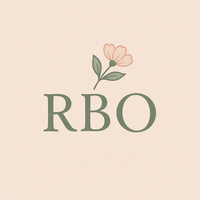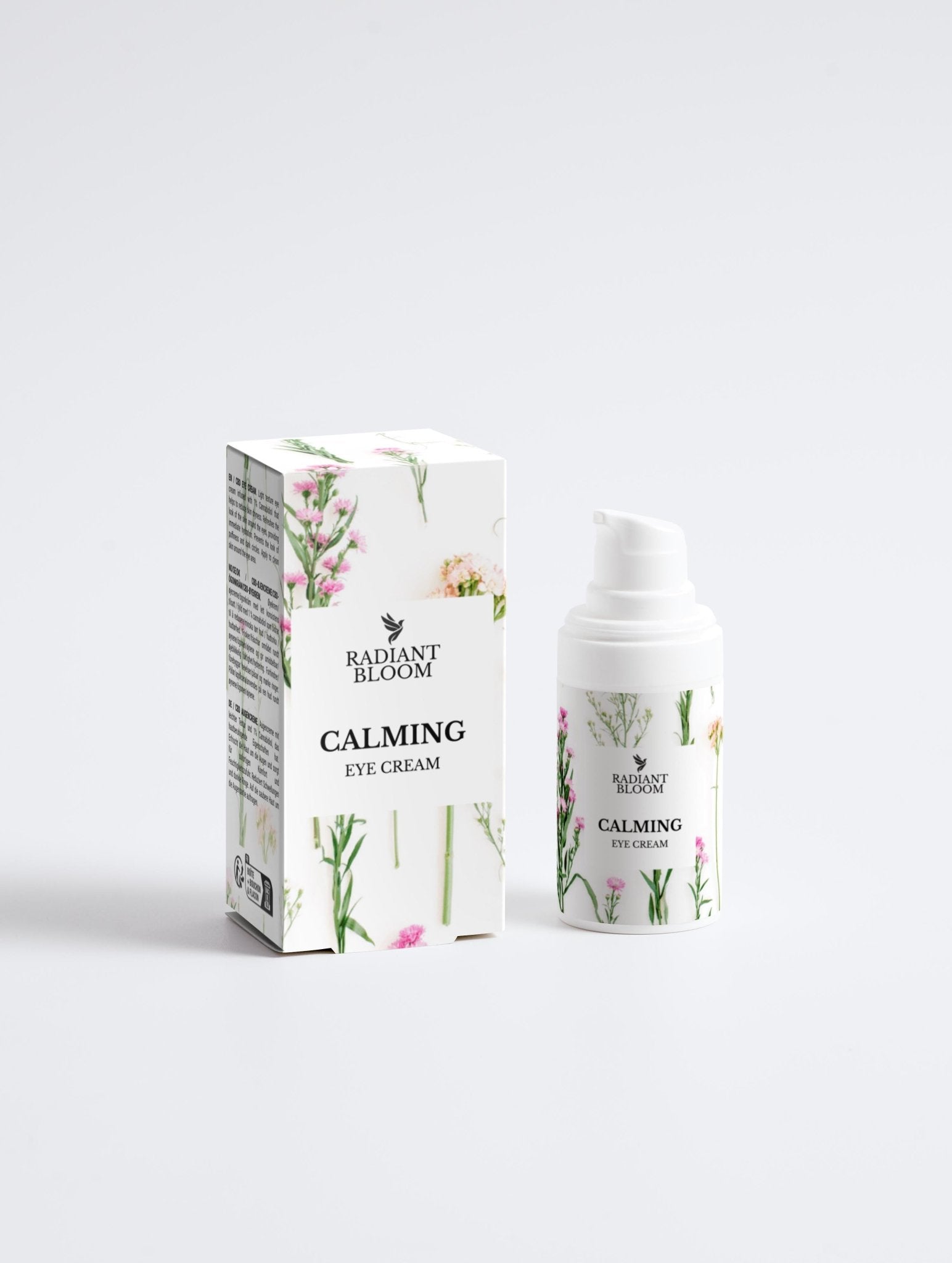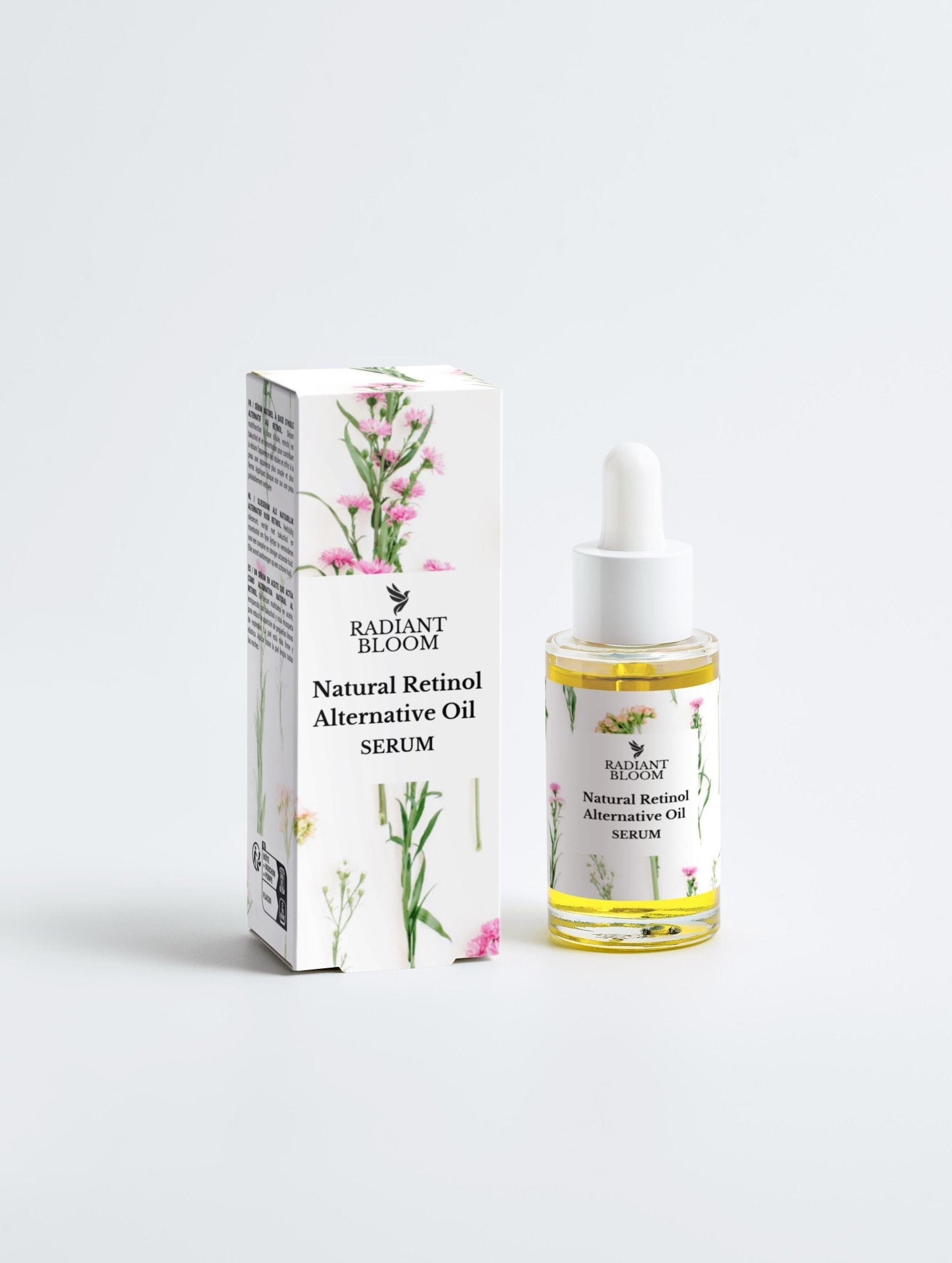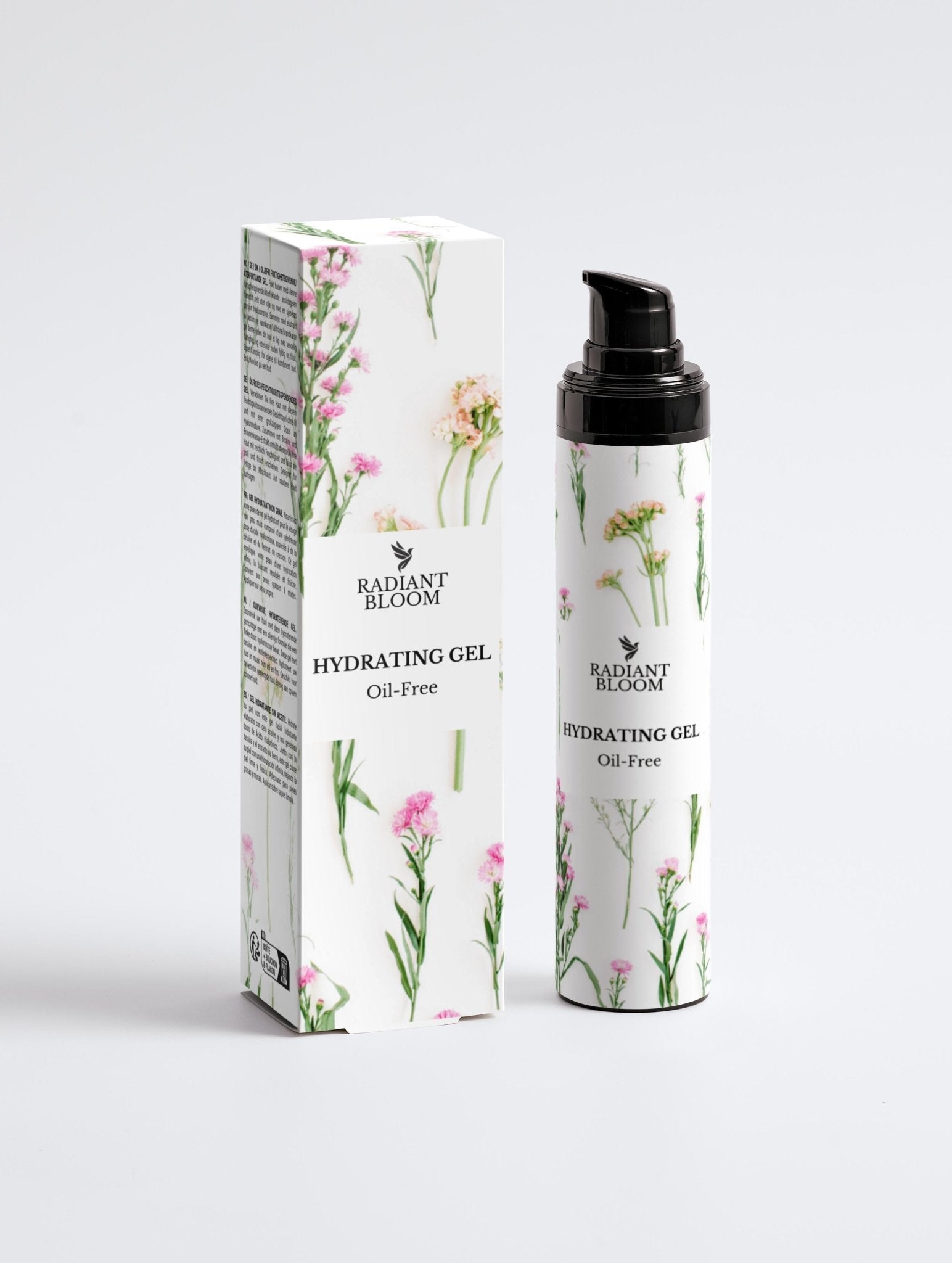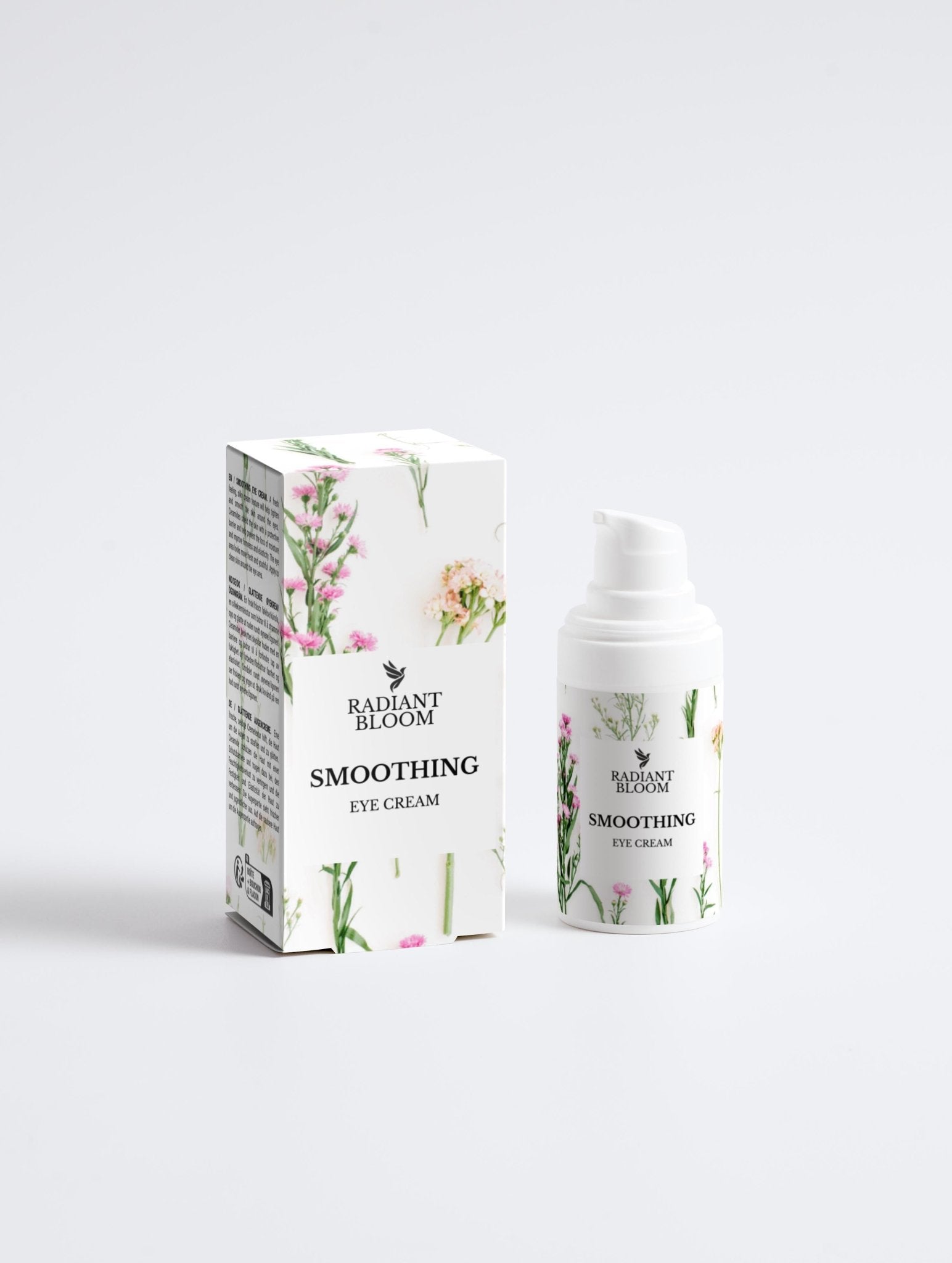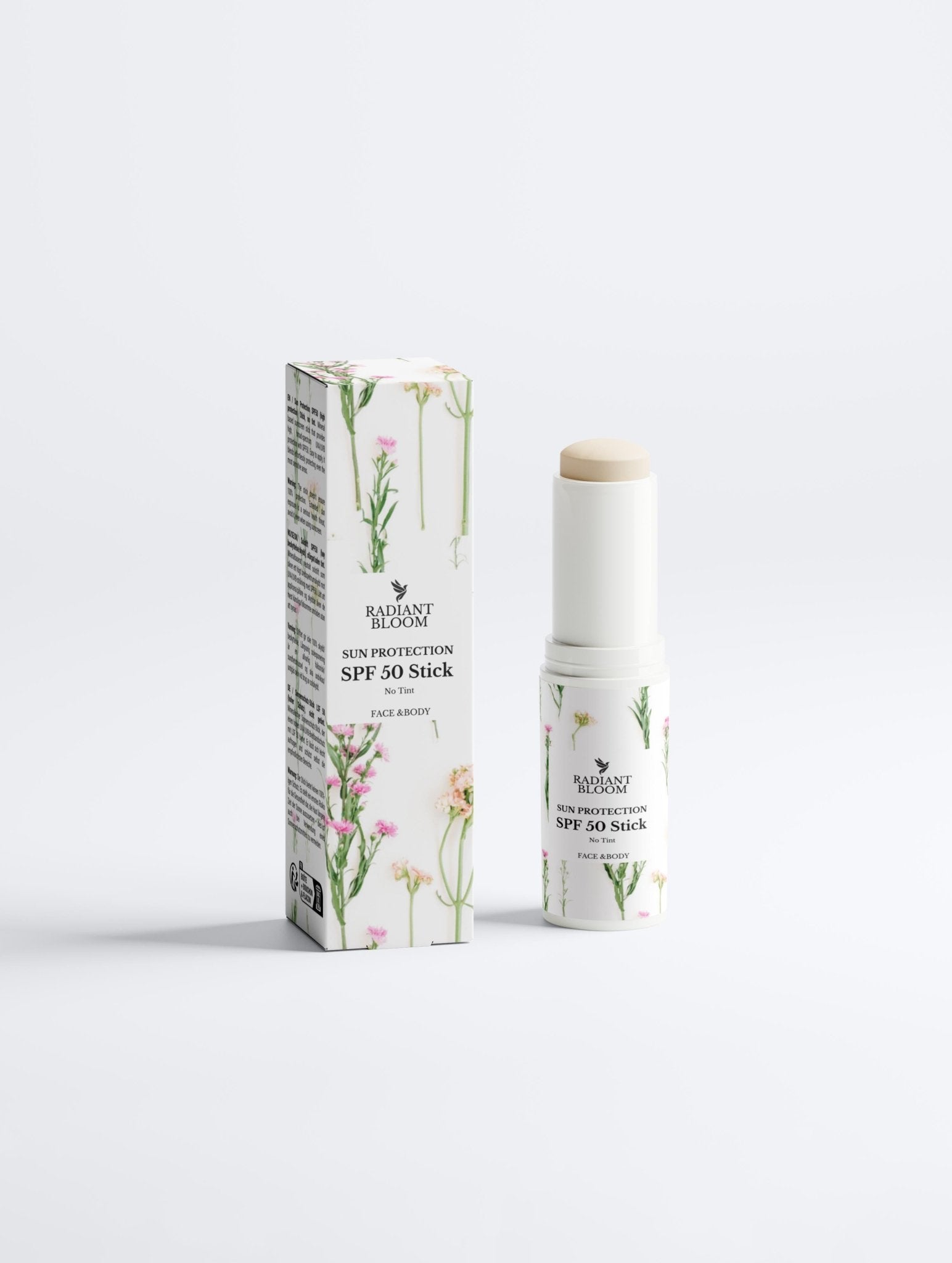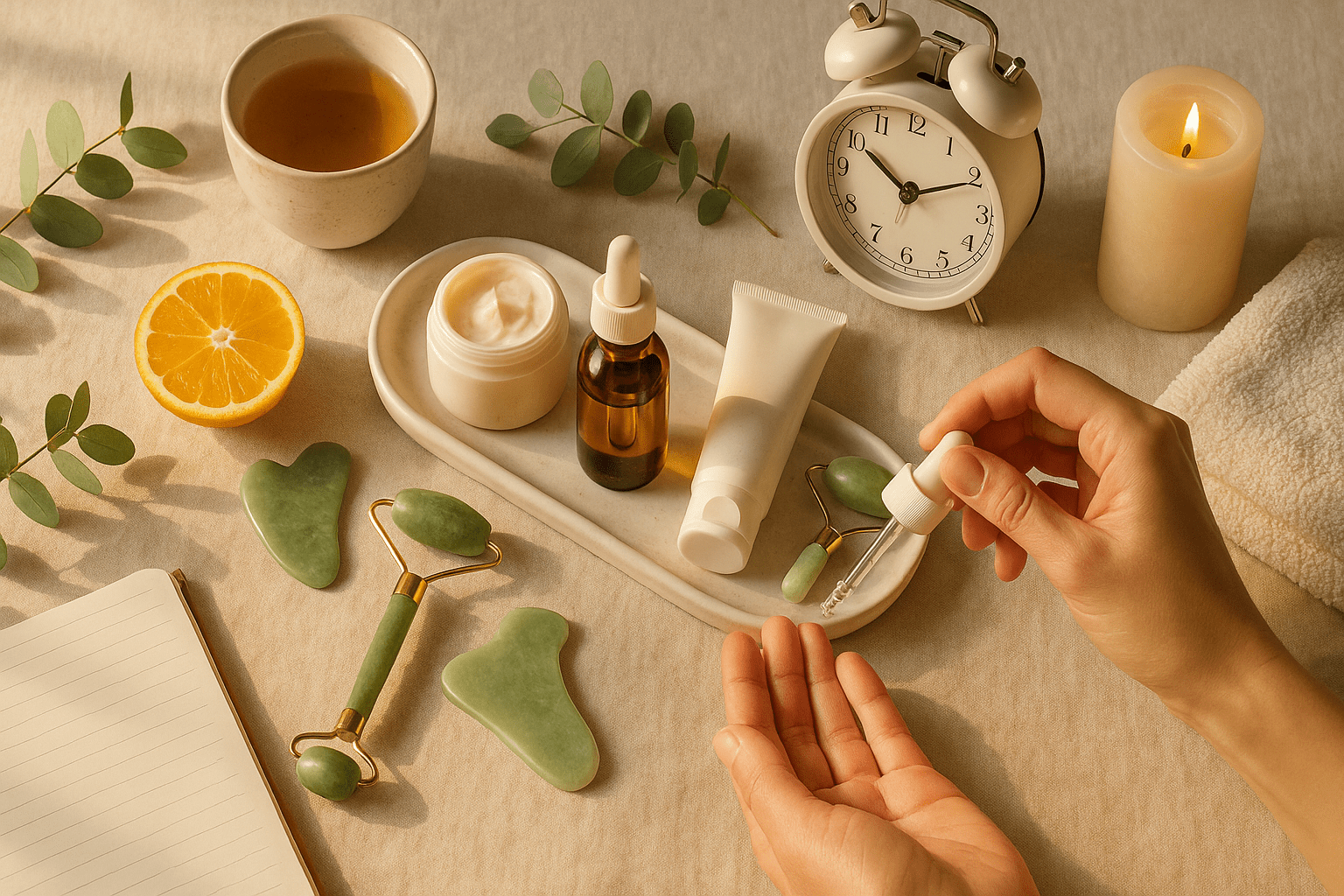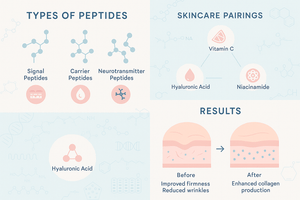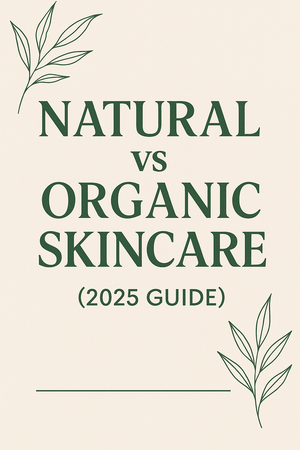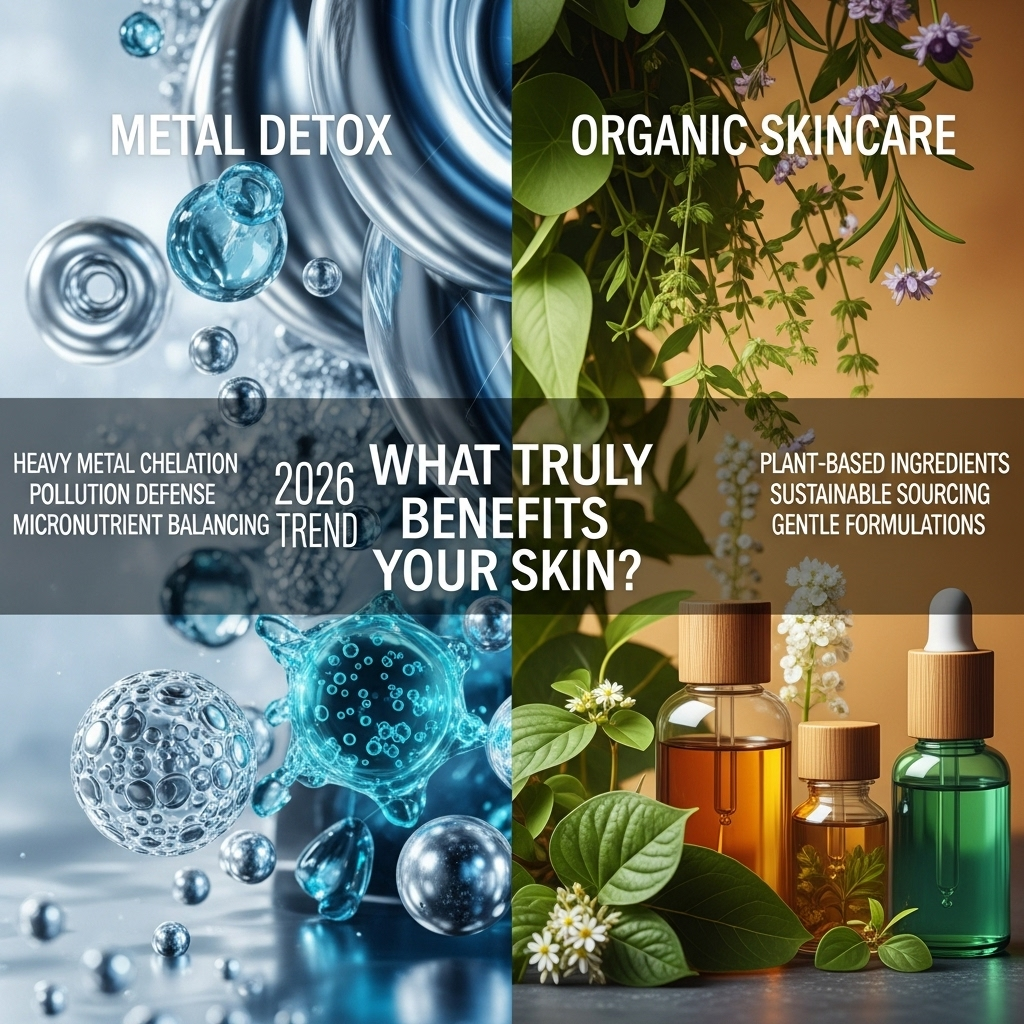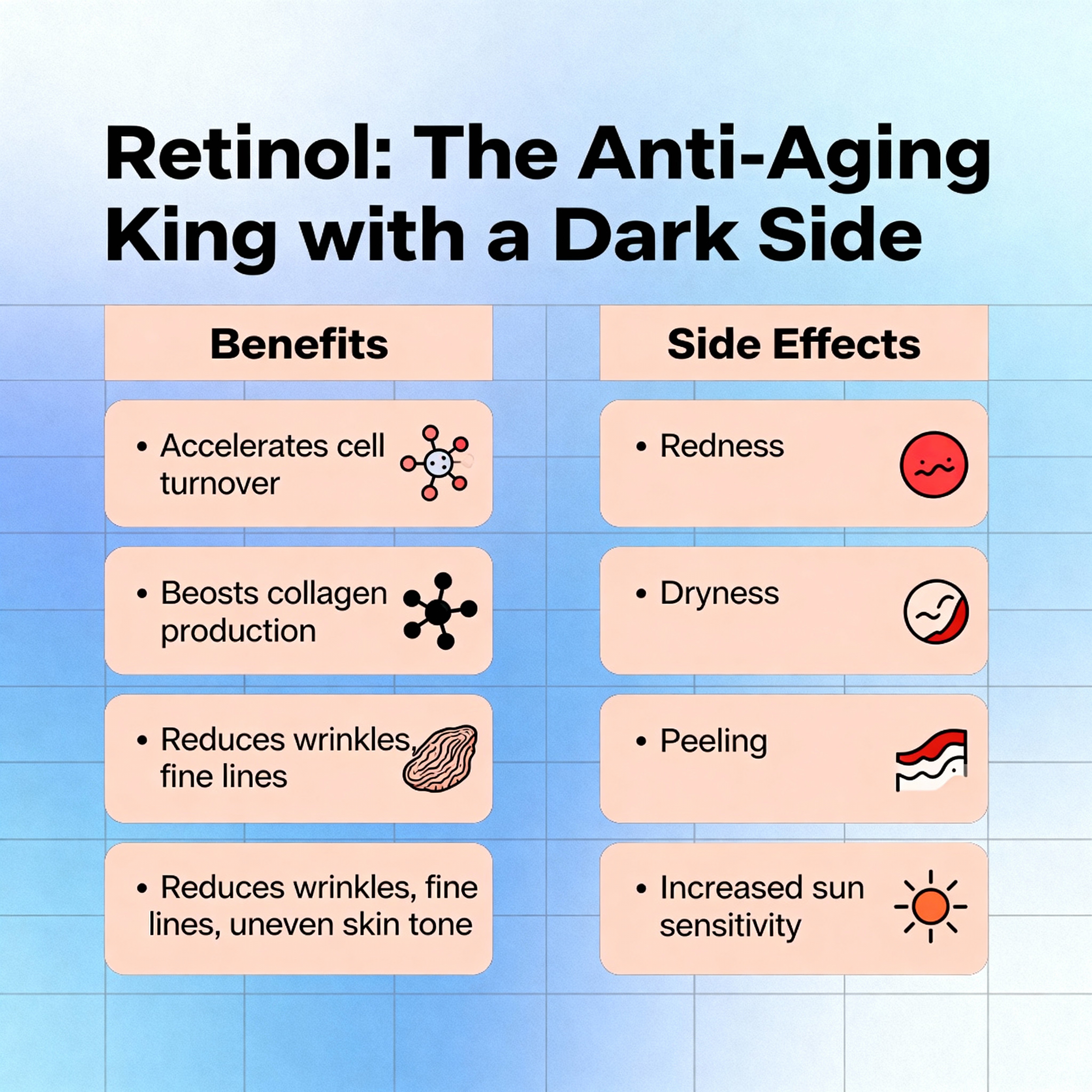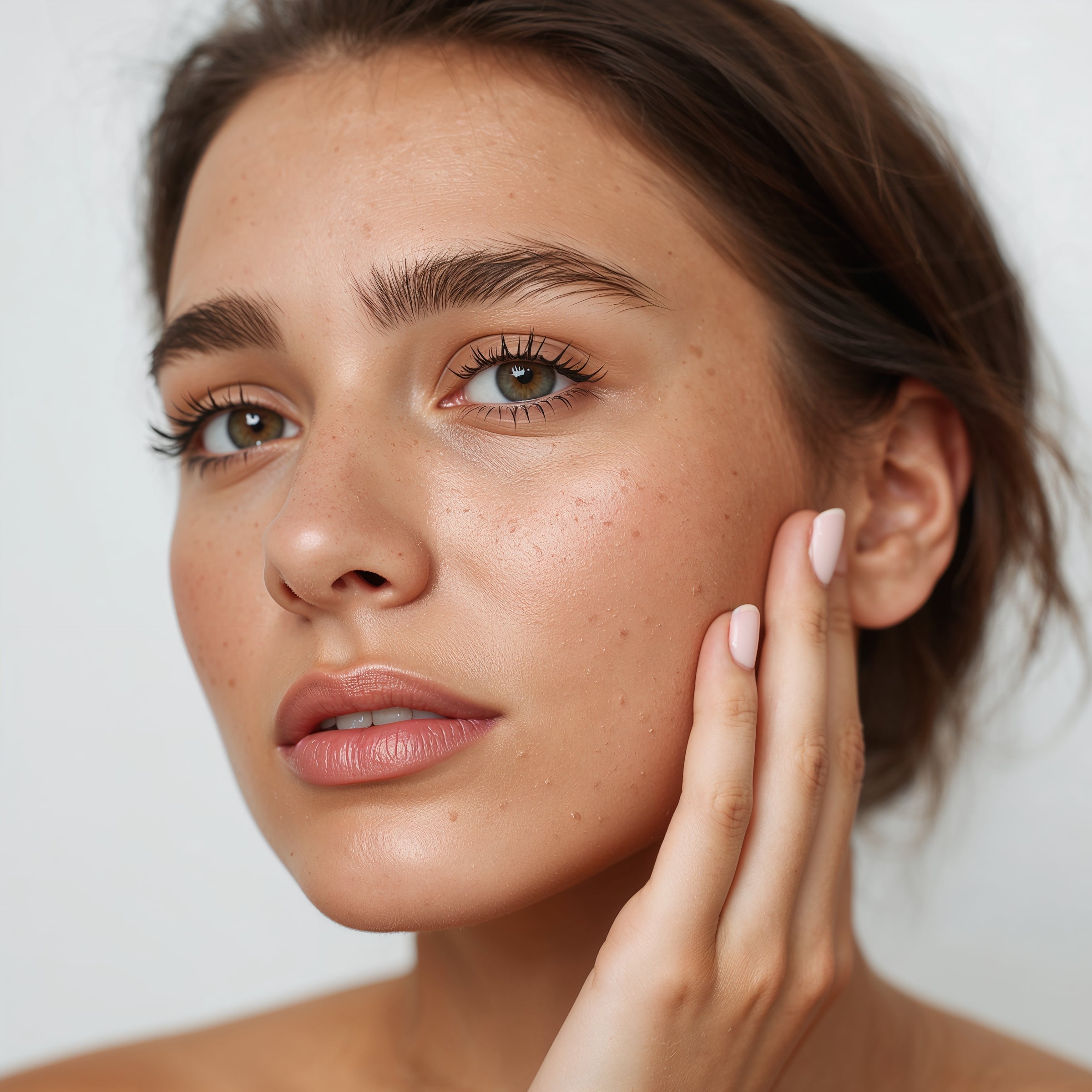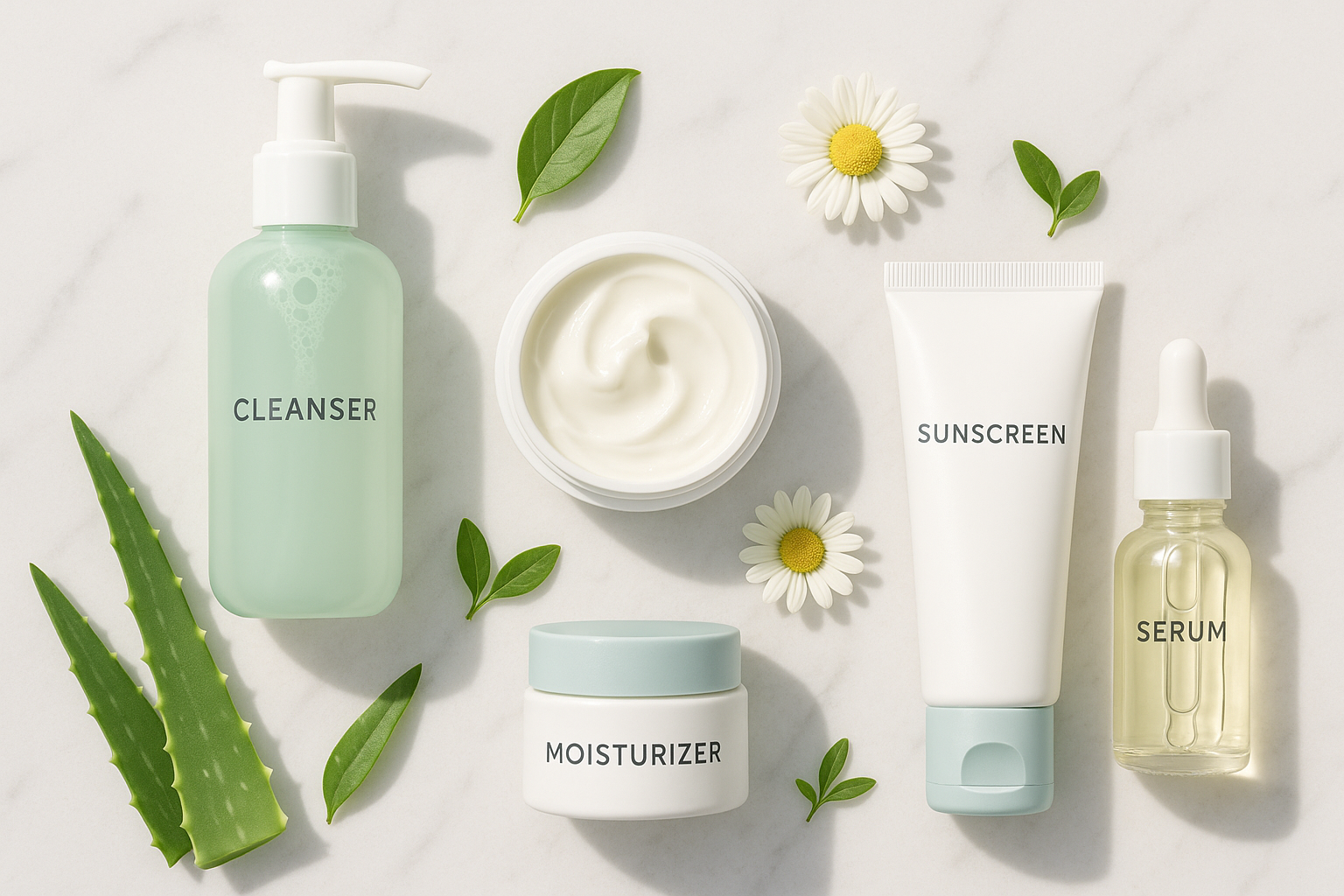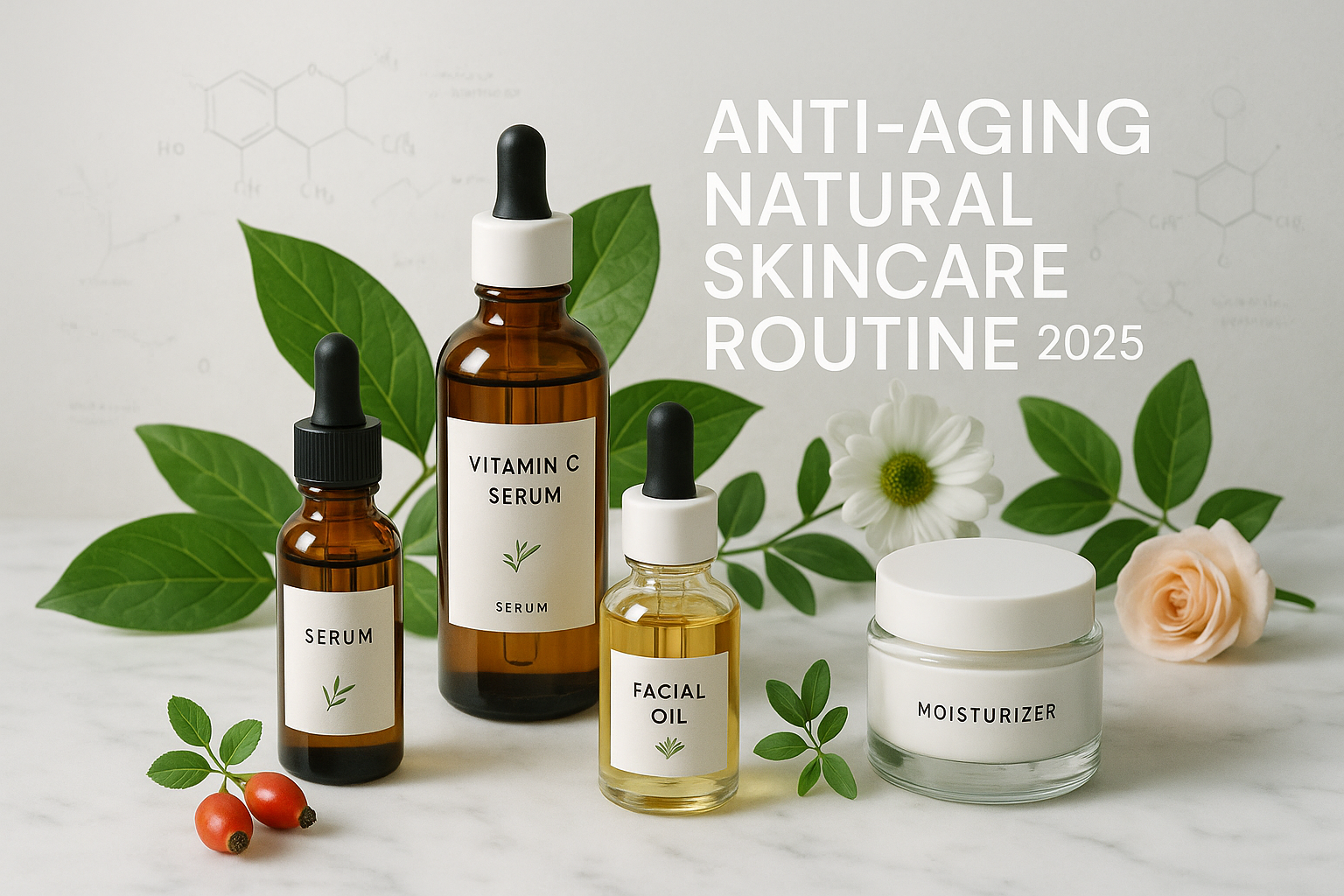Quick Answer A natural skincare routine uses plant-based, non-toxic ingredients in this order: Cleanser → Toner → Serum → Moisturizer → Oil → SPF (morning). Choose certified organic products and maintain consistency. Start with 3–4 products and build gradually. Explore Radiant Bloom Organic.
What Makes a Skincare Routine Natural?
A truly natural skincare routine goes beyond the label. It respects skin biology while harnessing nature’s most powerful ingredients.
The Natural Skincare Philosophy
- Ingredient Purity: botanicals, minerals, and naturally-derived ingredients without synthetic chemicals
- Skin Harmony: working with your skin’s natural processes
- Environmental Consciousness: sustainable, eco-friendly products
At Radiant Bloom Organic, we use 100% natural, vegan, eco-certified formulations that deliver real results.
Natural vs Conventional: The Real Difference
| Aspect | Natural Routine | Conventional Routine |
|---|---|---|
| Ingredients | Plant-based, minerals | Synthetic chemicals, petroleum derivatives |
| Preservatives | Vitamin E, rosemary extract | Parabens, phenoxyethanol |
| Fragrances | Essential oils, plant extracts | Synthetic fragrances, phthalates |
| Colorants | Plant/mineral pigments | Artificial dyes, coal tar |
| Results Timeline | 4–6 weeks gradual improvement | 1–2 weeks quick fix (often temporary) |
| Long‑term Effects | Healthier, balanced skin | Potential sensitization, dependency |
| Environmental Impact | Biodegradable, sustainable | Polluting, resource‑intensive |
The Science Supporting Natural Skincare
- Natural antioxidants can be highly stable in modern formulations.
- Plant-based ingredients tend to be biocompatible with skin.
- Natural routines may support a resilient skin microbiome.
Benefits of Natural Skincare Routines
1. Gentle Yet Effective
- No harsh stripping of natural oils; maintains pH balance
- Supports barrier function and soothes over time
2. Nutrient‑Rich Formulations
Vitamins (C, E, A, B), minerals (zinc, magnesium, selenium, copper) and phytoactives deliver comprehensive care.
3. No Hidden Toxins
Avoid the “Toxic Twenty” and opt for clean, transparent INCI lists.
4. Sustainable Beauty
- Organic farming and biodiversity preservation
- Reduced plastic and recyclable packaging
5. Long‑Term Skin Health
Gradual, compounding improvements in texture, elasticity, and luminosity.
Back to top ↑Essential Natural Ingredients
Star Natural Cleansing Ingredients
- Saponins: soapwort, yucca, quinoa (gentle surfactants)
- Clays: kaolin, bentonite, French green (deep clean)
- Oil cleansers: jojoba, sweet almond, Glow & Hydrate Facial Oil
Power Natural Actives
- Anti‑Aging: bakuchiol, rosehip oil, sea buckthorn, pomegranate
- Brightening: licorice root, kojic acid, vitamin C, turmeric
- Acne: tea tree, willow bark (BHA), neem, witch hazel
- Hydration: hyaluronic acid, aloe, glycerin, squalane
Natural Preservative Systems
Vitamin E, rosemary extract, fermented radish root, and properly diluted essential oils.
Back to top ↑Morning Natural Skincare Routine
Step 1: Gentle Awakening Cleanse (30s)
Water rinse, honey cleanser, green tea cleanser, or rose micellar water.
Step 2: Botanical Toner (15s)
Rose water, alcohol‑free witch hazel, green tea, or chamomile.
Step 3: Natural Serum (30s)
Vitamin C, niacinamide, hyaluronic acid, or antioxidant blends. See Radiant Bloom serums.
Step 4: Eye Care (10s)
Cucumber, caffeine, vitamin K, peptide complexes.
Step 5: Natural Moisturizer (30s)
Match texture to skin type — try Velvety Texture Face Cream for dry skin.
Step 6: Face Oil (Optional, 15s)
Rosehip, squalane, marula, jojoba — or Glow & Hydrate Facial Oil.
Step 7: Natural Sunscreen (60s)
Mineral SPF with zinc oxide/titanium dioxide (¼ tsp for face).
Quick AM: water rinse → moisturizer → SPF.
Back to top ↑Evening Natural Skincare Routine
Step 1: Oil Cleanse (60s)
Coconut, sweet almond, jojoba, or Glow & Hydrate Oil.
Step 2: Second Cleanse (60s)
Castile, clay, cream, or gel cleanser to finish the double cleanse.
Step 3: Weekly Exfoliation (2–3×)
AHAs/BHAs or gentle physical options (oat flour, rice bran, jojoba beads).
Step 4: Treatment Toner (15s)
Diluted ACV, fermented rice water, calendula, or lavender hydrosol.
Step 5: Natural Treatment Serum (30s)
Bakuchiol, peptides, alpha arbutin, or ceramides.
Step 6: Eye Treatment (10s)
Vitamin K, retinol alternatives, peptide complexes, rich eye balms.
Step 7: Natural Night Moisturizer (30s)
Shea or avocado creams, Velvety Texture Face Cream, mango balm.
Step 8: Facial Oil Seal (30s)
Argan, rosehip, sea buckthorn, tamanu.
Step 9: Spot Treatment (as needed)
Tea tree, turmeric paste, honey, or aloe.
Quick PM: oil cleanse → moisturizer → face oil.
Back to top ↑How to Build Your Natural Routine
Phase 1: Foundation (Weeks 1–2)
- Natural cleanser (by skin type)
- Organic moisturizer — explore Radiant Bloom Organic
- Mineral SPF (AM)
Success Tips: patch test, introduce one at a time, keep a skin diary, take before photos.
Phase 2: Enhancement (Weeks 3–4)
- Add toner/essence
- Introduce a targeted serum
- Face oil (PM)
Phase 3: Optimization (Weeks 5–8)
- Eye cream (if needed)
- Weekly masks (clay or hydrating)
- Exfoliation 2–3× weekly
- Specialized treatments as needed
Phase 4: Mastery (Week 9+)
- Multi-masking, facial massage, gua sha
- Seasonal adjustments & safe cocktailing
Building Your Routine Checklist
Week 1–2 Goals
- Remove sulfates, parabens, synthetic fragrance
- Purchase natural basics
- Establish AM/PM consistency
- Document starting point
Week 3–4 Goals
- Add one treatment product
- Master application techniques
- Notice initial improvements
- Adjust products if needed
Week 5–8 Goals
- Complete natural transition
- Add weekly treatments
- See significant results
- Share your journey
Natural Routines by Skin Type
Oily Skin Natural Routine
Morning: gel/clay cleanse → witch hazel toner → niacinamide serum → gel moisturizer → mineral SPF
Evening: jojoba oil cleanse → foaming cleanser → diluted ACV toner → willow bark (3×/week) → light moisturizer → tea tree spot treatment
Weekly: bentonite mask (2×) • enzyme exfoliation (1×)
Dry Skin Natural Routine
Morning: cream cleanse or water → rose mist → HA serum → rich moisturizer (Velvety Texture Face Cream) → face oil → moisturizing SPF
Evening: argan oil cleanse → milk cleanser → hydrating essence → peptide serum → heavy night cream → Glow & Hydrate Facial Oil
Combination Skin Natural Routine
Morning: gentle gel cleanse → balancing toner → lightweight serum (zone-specific) → moisturizer → SPF
Evening: double cleanse → toner → BHA on T‑zone (2×/week) → hydrating serum on cheeks → zone-specific moisturizer → oil on dry areas only
Sensitive Skin Natural Routine
Morning: micellar/cream cleanse → chamomile toner → centella serum → fragrance‑free moisturizer → mineral SPF
Evening: squalane oil cleanse → gentle cream cleanser → calendula toner → barrier repair serum → rich simple moisturizer
Mature Skin Natural Routine
Morning: cream cleanser → vitamin C serum → peptide moisturizer → antioxidant face oil → high SPF
Evening: thorough oil cleanse → second cleanse → treatment toner → bakuchiol serum → rich night cream → face oil
Back to top ↑Transitioning from Conventional Products
Week 1–2: The Purge Phase
Possible breakouts/texture changes; simplify and hydrate; drink water; be patient.
Week 3–4: The Adjustment Phase
Barrier rebuilding; microbiome rebalancing; oil production normalizing; steady routine.
Week 5–8: The Glow Phase
Improved texture, hydration, calmer skin; add actives slowly and track progress.
Back to top ↑DIY vs Store‑Bought Natural Products
DIY Works Well For
- Honey masks, oatmeal scrubs, green tea toner, aloe gel, clay masks
Buy Professional For
- Serums, sunscreens, eye creams, anti‑aging treatments, balanced cleansers
Shop safe, certified options at Radiant Bloom Organic.
DIY Safety Guidelines
- Clean tools, small batches, refrigerate water‑based recipes
- Label with dates and discard after ~1 week
- Never apply essential oils neat; avoid undiluted lemon/ACV; skip baking soda on face
Common Natural Skincare Mistakes
- “Natural = gentle” — patch test; dilute essential oils
- Overusing EOs — keep to 1–2% max
- Neglecting preservation — contamination risk in DIY
- Expecting instant results — allow 4–6 weeks
- Label blind spots — read INCI; seek certifications
- Skipping SPF — daily mineral SPF is non‑negotiable
- Expired products — shorter shelf life is normal; rotate & replace
Budget‑Friendly Natural Routines
$50/Month Natural Routine
AM: water cleanse → DIY green tea toner → affordable natural moisturizer → mineral SPF
PM: jojoba oil cleanse → gentle cleanser → same moisturizer → a few oil drops
Weekly: honey mask; oat scrub
Money‑Saving Tips
- Buy larger sizes; subscribe for deals at Radiant Bloom
- Use multi‑purpose products (e.g., Glow & Hydrate Oil)
- DIY simple masks/toners; avoid DIY serums/SPF
Investment Priority Order
- Quality cleanser
- Good moisturizer
- Mineral SPF
- One targeted serum
- Face oil
Frequently Asked Questions
How long before I see results?
Initial texture/hydration improvements in 1–2 weeks; clearer tone/fine‑line changes in 4–6 weeks with consistency.
Can I mix natural and conventional?
Possible, but during transition prioritize natural for leave‑ons and conventional for rinse‑offs.
Is natural skincare suitable for acne‑prone skin?
Yes - tea tree, willow bark (BHA), and neem are excellent options.
What’s the most important product?
A great moisturizer; consider Velvety Texture Face Cream.
How do I verify “natural” claims?
Look for third‑party certifications (USDA Organic, Ecocert, COSMOS) and full transparency.
Should I change routine seasonally?
Lighter textures/antioxidants in summer; richer creams/oils in winter.
Pregnancy‑safe?
Generally safer, but avoid certain essential oils and high vitamin A. Consult your provider.
Why does natural sometimes cost more?
Higher‑quality inputs and certifications; typically lower cost‑per‑use.
For men too?
Absolutely - same skin science; preference often for lighter textures.
Advanced Natural Skincare Techniques
Facial Massage with Natural Oils
- Apply 3–4 drops of Glow & Hydrate Facial Oil
- Upward strokes neck → forehead; circles on cheeks; gentle taps around eyes
- 5 minutes daily for best results
Gua Sha with Natural Products
Prep with a generous oil layer; use rose quartz or jade tool; work upward/outward in sections.
Natural Face Steaming
Steam 5–10 minutes with herbs (chamomile, rose, lavender); follow with a clay mask and hydrating routine.
Natural Skincare Ingredients to Avoid
- EOs to use cautiously: cinnamon, peppermint, citrus oils, clove, oregano
- Avoid on face: undiluted lemon/ACV, baking soda, coarse sugar, salt scrubs
- Common allergens: nut oils, propolis/beeswax, lanolin, ragweed‑family extracts
Seasonal Natural Skincare Adjustments
- Spring: gentle exfoliation; lighter moisturizers; antioxidant serums
- Summer: gel textures; oil control; diligent SPF; aloe soothing
- Fall: repair summer damage; introduce retinol alternatives; richer nights
- Winter: maximum hydration; oil cleansing; humidifier; minimal exfoliation
Natural Skincare for Different Life Stages
- Teens/20s: balance & prevention (tea tree, niacinamide)
- 30s: early anti‑aging (vitamin C, peptides, bakuchiol)
- 40s/50s: firming & repair (ceramides, antioxidants)
- 60s+: deep nourishment (squalane, shea, gentle actives)
The Science Behind Natural Skincare Success
- Plant actives support collagen, antioxidant defenses, and barrier function.
- Microbiome‑friendly formulations maintain skin’s natural defenses.
- Bioavailable botanicals offer synergistic effects.
Creating Your Natural Skincare Sanctuary
- Organize with glass containers; natural fiber cloths; air‑purifying plants
- Store oils in dark bottles; refrigerate water‑based DIY; label dates
Natural Skincare Shopping Guide
What to Look For
- USDA Organic / COSMOS / Ecocert certifications
- Full ingredient transparency; recyclable or glass packaging; cruelty‑free
- Shop Radiant Bloom Organic
Red Flags
- “Fragrance/parfum”, petroleum derivatives, artificial colors, no expiration date
Success Stories: Natural Routine Transformations
“After years of harsh acne treatments, switching to tea tree, willow bark, and Radiant Bloom Organic cleared my skin in 6 weeks without dryness or irritation.” - Sarah
“At 45, I finally have a healthy glow - the Glow & Hydrate Facial Oil beats my old synthetic serums.” - Michael
Your Natural Skincare Action Plan
Immediate Actions (Today)
- Audit your current products
- Order natural basics from Radiant Bloom Organic
- Subscribe for 15% off your first order
- Plan your transition timeline
Week 1 Goals
- Remove products with sulfates, parabens, synthetic fragrance
- Start basic natural routine (cleanser, moisturizer, SPF)
- Take before photos
- Begin skin diary
Month 1 Targets
- Establish full natural routine
- Add one treatment product
- Master application techniques
- See initial improvements
90‑Day Transformation
- Optimize routine
- Track significant results
- Share your success story
- Help others make the switch
Resources for Your Natural Journey
- Recommended reading: The Green Beauty Guide, Clean Beauty
- Our blog: Radiant Bloom Organic
- Natural skincare communities: join our email list; follow @radiantbloomorganic
Special Offer for Natural Routine Beginners
Exclusive for Blog Readers: Subscribe and receive 15% off your first Radiant Bloom Organic order, a free Natural Skincare Routine Guide (PDF), monthly tips, and early access to new products.
- ✅ 100% Natural, Vegan, Eco‑Certified products
- ✅ Free shipping on orders over $150
- ✅ 30‑day money‑back guarantee
- ✅ Clean beauty, backed by science
Final Thoughts: Your Natural Skincare Future
Natural skincare is a lifestyle that supports cleaner ingredients, sustainable practices, and long‑term skin health. Start simple, be patient, and let nature do the heavy lifting - with help from Radiant Bloom Organic.
Connect With Us
- Email: info@radiantbloomorganic.com
- Instagram: @radiantbloomorganic
- Website: www.radiantbloomorganic.com
Medical Disclaimer: This guide provides general information only. Consult a dermatologist for specific concerns.
Affiliate Disclosure: This post contains links to Radiant Bloom Organic products we genuinely recommend.
